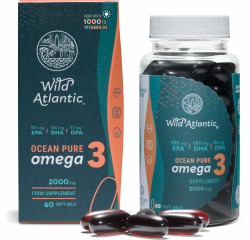The Critical Role of Vitamin K2 in Enhancing Vitamin D’s Benefits
Awareness around vitamin D deficiency has surged in recent years, with many people recognizing the essential role this nutrient plays in optimal health. However, there’s another vital component that is often overlooked: vitamin K2.Vitamin D and Bone Health
Vitamin D is well-known for its role in supporting bone health. Calcium, essential for the growth, development, and maintenance of the skeleton, provides the necessary strength and structure. Vitamin D enhances calcium absorption from the intestines and its re-absorption from the kidneys, significantly boosting the body’s calcium levels .The Interaction Between Vitamin D and Osteocalcin
Vitamin D directly influences osteoblasts, the bone-building cells, increasing their production of osteocalcin. Osteocalcin is crucial for directing calcium into the bones. However, for this process to occur, osteocalcin must undergo carboxylation, a vitamin K-dependent process, making vitamin K essential for bone mineralization .Consequences of Vitamin K Deficiency
Without sufficient vitamin K, osteocalcin cannot be carboxylated, leading to high levels of uncarboxylated osteocalcin. This situation results in calcium not being effectively delivered to the bones, causing them to become porous. Additionally, the calcium may be deposited in the arteries, leading to calcification and an increased risk of coronary heart disease .The Importance of Vitamin K2
Numerous peer-reviewed studies have demonstrated that vitamin K2 is a highly effective activator of osteocalcin. Therefore, it is recommended to combine vitamin D3 with vitamin K2 in supplementation to support bone health and protect cardiovascular health .Recommended Dosages
Research supports the use of dosages of 1000 IU of vitamin D3 and 45 mcg of vitamin K2 (MK7) to prevent bone loss and demineralization . For more information on the benefits of vitamins and how to maintain optimal health, explore our comprehensive guide on Vitamin D and other related articles.Sources:
- Holick, M. F. (2007). Vitamin D deficiency. New England Journal of Medicine, 357(3), 266-281.
- Norman, A. W. (2008). From vitamin D to hormone D: fundamentals of the vitamin D endocrine system essential for good health. The American Journal of Clinical Nutrition, 88(2), 491S-499S.
- Karsenty, G. (2003). The complexities of skeletal biology. Nature, 423(6937), 316-318.
- Hauschka, P. V., Lian, J. B., Cole, D. E., & Gundberg, C. M. (1989). Osteocalcin and matrix Gla protein: vitamin K-dependent proteins in bone. Physiological Reviews, 69(3), 990-1047.
- Schurgers, L. J., Teunissen, K. J. F., Hamulyák, K., Knapen, M. H., Vik, H., & Vermeer, C. (2007). Vitamin K-containing dietary supplements: comparison of synthetic vitamin K1 and natto-derived menaquinone-7. Blood, 109(8), 3279-3283.
- Beulens, J. W., Booth, S. L., van den Heuvel, E. G., Stoecklin, E., Baka, A., & Vermeer, C. (2013). The role of menaquinones (vitamin K2) in human health. British Journal of Nutrition, 110(8), 1357-1368.
- Rheaume-Bleue, K. (2011). Vitamin K2 and the Calcium Paradox: How a Little-Known Vitamin Could Save Your Life. John Wiley & Sons.
- Iwamoto, J., Takeda, T., & Sato, Y. (2006). Effects of vitamin K2 on osteoporosis. Current Pharmaceutical Design, 12(5), 575-583.
- Schurgers, L. J., & Vermeer, C. (2000). Determination of phylloquinone and menaquinones in food. Pathophysiology of Haemostasis and Thrombosis, 30(6), 298-307.
- Cockayne, S., Adamson, J., Lanham-New, S., Shearer, M. J., Gilbody, S., & Torgerson, D. J. (2006). Vitamin K and the prevention of fractures: systematic review and meta-analysis of randomized controlled trials. Archives of Internal Medicine, 166(12), 1256-1261.





























